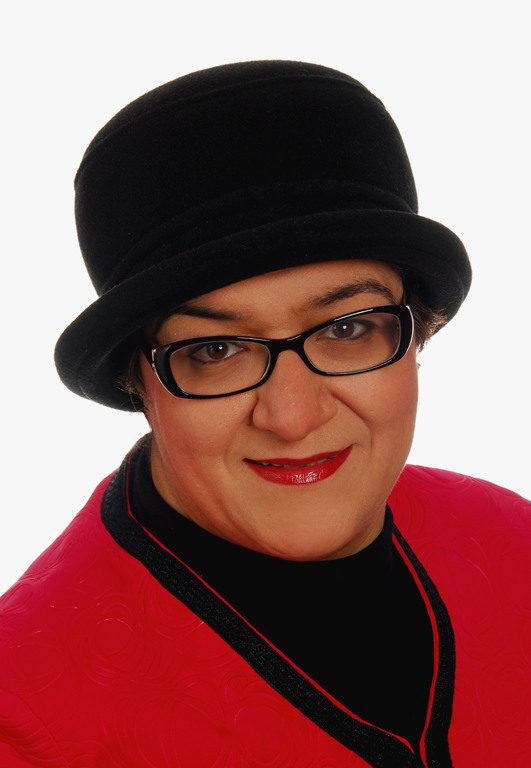Overview

Welcome to Master Embedded Systems programme at Technische Universität Chemnitz.This English-language programme provides a world-class education with focus on future demand and challenges of embedded systems. Embedded systems are important in industry and research as a key technology and make our daily life more comfortable and safer. Embedded systems are ubiquitous, and decisive for today’s economy and society. They drive innovation and help for diversification of products in terms of functionality, efficiency and quality.
Graduates at Technische Universität Chemnitz gain the ability to solve engineering tasks at the interface between hardware and software. The aim here is to develop intelligent system solutions by combining micro system technologies, information and communication technologies and software engineering. Therefore, besides the theoretical education also the practical trainings and soft skills are well implemented in the course program. Because of the increasing importance and the high potential for innovation the possibilities for graduates are excellent, both in science as well as in industry.
The application portal in Uniassist opens at the beginning of May 2024.
Career opportunities
The possibilities for embedded system graduates are excellent both in science and in industry, because of the increasing importance and the high potential for innovation in embedded systems. The English Master's Programme trains the abilities to become a global player in this field. In addition, the occupation of leadership positions in management is also possible.
- Automotive industry
- Aerospace industry
- Sensor industry
- Semiconductor industry
- Robotics and automation
- Plant Engineering
- Software engineering
- Research and science
Course structure
This English-language Master's course provides a world-class education with a focus on embedded systems. The aim here is to develop intelligent systems solutions by combining microsystems technologies, information and communication technologies, and software development.
The basic modules (compulsory subjects) are in particular:
- Digital Components and Architectures for Data Processing
- Smart Sensor Systems
- Digital Signal Processing
- Computer Vision
- Design of Software for Embedded Systems
- Real Time Systems
- Project Lab Embedded Systems
- Design of Digital Systems
- Hardware/Software Co-design
Built on these compulsory subjects, the programme offers various opportunities for further deepening in the following majors:
- System Design
- Automotive Systems
- Signal Processing
- Embedded Systems
- Non-technical
Depending on availability, the study programme offers opportunities to do a little research project at the university or a research internship (not both of them); Internship: language requirement: German B2
The program is completed by the Master’s Thesis in the 4th semester.
Admission requirements for international students
| Academic: |
B.Sc. Elektrotechnik und Informationstechnik (TU Chemnitz) or an equivalent appropriate degree in the area of electrical engineering and information technology (decision by the board of examiners) |
| English: |
B2 or equivalent proof of English language proficiency |
| German: |
A1 for regular admission and enrolment. A2 until the end of the 3rd semester |
| Degree: |
Master of Science (M.Sc.) |
| Start of course: |
October (winter-semester) |
| Application deadline: |
15th July (international students, Uni Assist) |
| Duration of study: |
4 semesters (2 years) |
| Total Credits: |
120 ECTS Points |
| Location: |
Chemnitz, Germany |
|
The medium of instruction is English. The additional requirement for German language proficiency is caused by general regularities of the university. |
|
Application
| Application procedure for international students | International students have to apply though Uni Assist according to the instructions given by the related sites of uni-assist. |
| Application procedure for German students | German students are asked to use the university's online application portal and follow the instructions given by Studentenservice. |
| Central Course Guidance Service | Studierendenservice |
| Academic counseling | 
Dr. Jürgen Bräuer
Academic Advisor
|
Contact

-
Phone:+49 371 531-35093
-
Email:
-
Address:Reichenhainer Straße 70, 09126 Chemnitz
-
Room:C25.114 (prev. 2/W114)

-
Phone:+49 371 531-36931
-
Email:
-
Address:Reichenhainer Straße 70, 09126 Chemnitz
-
Room:C25.207 (prev. 2/W207)
Studien- und Prüfungsordnung
Study and exam regulations for the Master Embedded Systems programme
FAQ
-
What is the pre-requisite knowledge expected in this course?
It is expected that students applying to Master Embedded Systems program have strong fundamentals of Hardware logic (example: Operational Amplifiers, Signal Processing, Microcontroller Architectures) and Software (example: C or C++).
-
Do I need to have German language skill to take part in this course?
Though the mode of teaching is in English for this course. German Level A1 Certificate is required for regular admission and enrolment and German Level A2 Certificate should be submitted by the end of 3rd semester.
-
Where can I find important dates during the semester for this program?
Details about important dates for the semester cyle can be found at this link.
-
Where can I find the time table for this program?
Time table for this program can be found at this link.
-
Where can I find details about the curriculum and exam regulations of this program?
Details about curriculum and exam regulations related to this program can be found at this link.
-
Who can be the supervisor of the master thesis?
Advisor of the master thesis can be any professor from the department of Electrical Engineering and Information Technology ( link to the professorships ), but the professorship should be related to the topic of the thesis.
-
Is there any mondatory industry internship in the master course?
The master course itself includes enough practical components like "Embedded System Lab", "Research Project" and "Master Thesis". This is why there is no mandatory industry internship included.
-
What is the optimal duration of the studies?
The optimal duration of the studies is four semesters. It is important to maintain it, because it is not well accepted by research and industry to extend the study duration.
-
Is the master course research or industry oriented?
The master course includes fundamental and applied knowledge related to embedded systems. The graduates have possibilities to make a career both in research as well as in industry. For both, they need to fulfill the corresponding course requirements. For a research career, the results obtained during the studies should be significantly higher than the average generally reached.
-
What is the optimal date to come to Chemnitz?
The studies begin in October every year. The first week is dedicated to introduction to studies: "Orientation-Phase" which includes:
- Interesting information about study requirements, study environment, location of important offices, Buildings and library.
- Enrolment to the practicals is also carried out during the first week of the semester.
- During second week of the course professor from each chair introduces the topics, outlines and expectations of the specific courses.
-
How can I prepare my self to the embedded systems course before coming to Chemnitz?
Please try to train programming skills, analog signal processing (operational amplifiers circuits) and German language for day to day communication.






